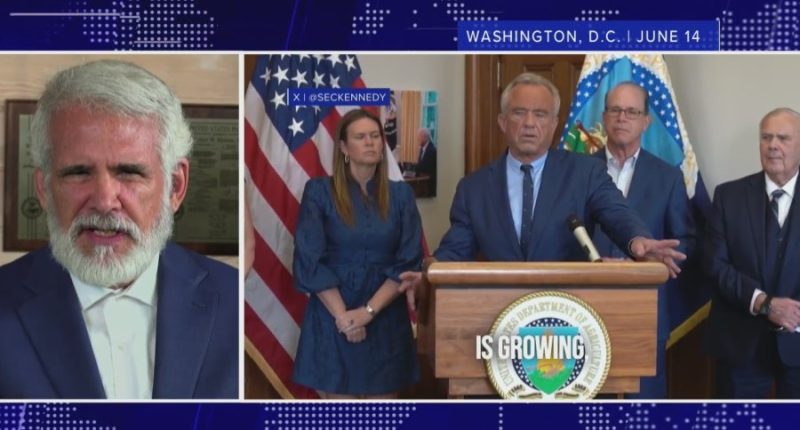Share this @internewscast.com

() Dr. Robert Malone, the mRNA vaccine researcher appointed to Health Secretary Robert F. Kennedy Jr.’s new vaccine advisory committee, pushed back Thursday against characterizations of him as a vaccine skeptic, saying he has spent his career developing vaccines and objects to bypassing medical ethics rather than opposing vaccines themselves.
“I’ve spent most of my career, I’m now 65, developing vaccines,” Malone said Thursday on ’s “On Balance,” after Kennedy announced eight new appointees to replace the Advisory Committee on Immunization Practices panel that was dismissed. “Framing me as a vaccine skeptic is another one of those ironies.”
Kennedy’s decision to “retire” the previous 17-member panel was widely criticized by doctors’ groups and public health organizations, who feared the advisers would be replaced by a group aligned with Kennedy’s desire to reassess and possibly end longstanding vaccination recommendations.
The new appointees include Malone, who helped develop early mRNA vaccine technology but later became a prominent critic of COVID-19 vaccines, promoting conspiracy theories and unproven treatments. He has claimed millions of Americans were “hypnotized” into taking COVID-19 shots and suggested the vaccines cause a form of AIDS.
Other appointees include Dr. Martin Kulldorff, a biostatistician who co-authored the Great Barrington Declaration opposing pandemic lockdowns, and Dr. Cody Meissner, a former ACIP member.
Malone said he objects to “bypassing of fundamental medical ethics, such as the importance of informed consent,” and experienced adverse effects from COVID-19 vaccines, including what he described as possible myocarditis and hypertension.
When asked about parents’ concerns that unvaccinated children could make other children vulnerable, Malone questioned the logic, saying it “immediately demonstrates that the product is not as effective as we’ve been told it is.”
Malone said the new committee would be “more active, more rigorous, more questioning” and focused on eliminating conflicts of interest that he said plagued the previous panel.
The Advisory Committee on Immunization Practices, created in 1964, makes recommendations to the Centers for Disease Control and Prevention director on how FDA-cleared vaccines should be used. The CDC’s recommendations are widely followed by doctors and determine vaccination program scope.
The Associated Press contributed to this report.












